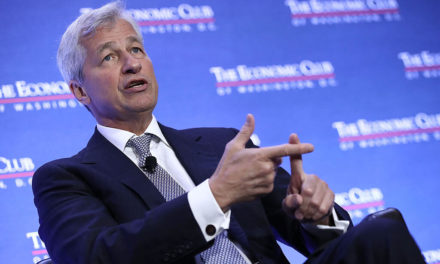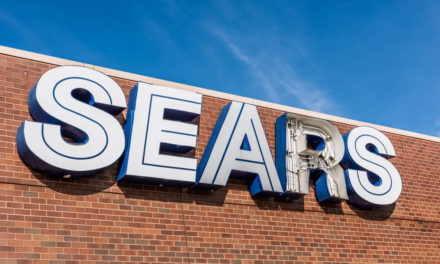Global business leaders are reassessing their ties with Saudi Arabia, stoking pressure on the Gulf kingdom to explain what happened to a dissident writer who disappeared after visiting its consulate in Istanbul.
British billionaire Richard Branson on Friday suspended business links with Saudi Arabia, and Uber CEO Dara Khosrowshahi said he might not attend a major investment conference in the country this month amid reports that Jamal Khashoggi may have been killed at the Saudi consulate in Turkey’s capital.
“What has reportedly happened in Turkey around the disappearance of journalist Jamal Khashoggi, if proved true, would clearly change the ability of any of us in the West to do business with the Saudi government,” Branson said in a statement.
Branson, founder of Virgin Group, says he will suspend his directorships in two tourism projects in Saudi Arabia while an investigation takes place. He also is putting on hold discussions about a proposed Saudi investment in space companies Virgin Galactic and Virgin Orbit.
Saudi Arabia is facing increasing international pressure to clarify what happened to Khashoggi, a Washington Post columnist, with U.S. President Donald Trump and British Foreign Secretary Jeremy Hunt among those demanding answers.
Khosrowshahi is scheduled to speak at the Future Investment Initiative conference, which takes place Oct. 23-25 in the Saudi capital, Riyadh. The event also lists JPMorgan Chase CEO Jamie Dimon, Blackrock Chairman Larry Fink and U.S. Treasury Secretary Steve Mnuchin among dozens of expected speakers.
“I’m very troubled by the reports to date about Jamal Khashoggi,” Khosrowshahi said. “We are following the situation closely, and unless a substantially different set of facts emerges, I won’t be attending the FII conference in Riyadh.”
Increase in Medicare’s Outpatient ‘Part B’ Premium
Medicare says its “Part B” premium for outpatient care will rise by just $1.50 a month next year. That means retirees should be able to keep more of their recently-announced Social Security cost-of-living increase.
Medicare officials said Friday the standard premium will be $135.50 a month for 2019. “Part B” of Medicare covers doctor visits and outpatient care, while “Part A” covers hospitalization.
The annual outpatient deductible will increase by only $2, to $185 next year. That’s the amount beneficiaries are responsible for before Medicare starts paying.
The inpatient deductible will increase by $24, to $1,364 in 2019.
Just Thursday, Social Security announced a 2.8 percent cost-of-living adjustment, or COLA, the highest in 7 years. It works out to an estimated $39 a month for the average retired worker.
Citigroup Profit Rises to $4.6 Billion, Beats Street Views
Citigroup said Friday that its third-quarter profits rose 12 percent from a year earlier, as the banking conglomerate was able to cut expenses and benefited from lower taxes.
The New York-based bank earned $4.62 billion in the third quarter, up from $4.13 billion a year ago. Citi earned a profit of $1.74 per share, which was better than the $1.68 a share that was expected according to a survey of analysts’ by FactSet.
Citi was able to grow profits despite a small drop in revenue compared to a year earlier. The bank’s revenues were $18.39 billion in the quarter, down from $18.42 billion a year earlier. That’s despite the steady rise in interest rates in the last year. While Citi earned more in interest income last quarter, the bank also had to pay more for deposits, which effectively negated any gains.
Expenses were down 1 percent from a year earlier.
Most of Citi’s profit growth came because of taxes. Like other big companies, Citi got a big tax break from the tax law passed last year. The amount of money the bank set aside for income taxes last quarter was down 21 percent from a year earlier.
Citi’s investment banking division had a relatively strong quarter. Net income for Citi’s institutional clients group was up 2 percent from a year earlier. The banks saw higher trading revenues in stocks, bonds and currencies, one of Citi’s specialties.
Wells Fargo’s Profit Rises to $6B in Latest Quarter
Wells Fargo, still haunted by multiple scandals, reported higher earnings in the third quarter Friday but still fell short of what analysts were looking for.
Wells saw its earnings jump to $6 billion from $4.5 billion in 2017’s third quarter, although last year the bank had to set aside $1 billion for legal expenses related to its mortgage practices before the financial crisis.
The San Francisco-based bank earned $1.13 a share, less than the $1.17 expected by analysts surveyed by Zacks Investment Research.
The company’s revenue was up slightly from the same period last year at $21.9 billion.
The bank has faced several investigations in recent years over practices including the opening of accounts without customers’ consent, charging clients for unnecessary insurance policies, and imposing unfair fees tied to mortgage rates.
While its rivals are benefiting from rising interest rates and the Republican-passed tax law, due to the numerous scandals, Wells has been ordered by the government to halt growth until further notice.
Wells announced last month that it planned to cut up to 10 percent of its workforce over the next three years. The bank, which employs about 265,000 workers, announced in June that it would sell more than 50 retail branches in the Midwest and would reduce the number of branches it operates to about 5,000 by the year 2020.
Wells Fargo shares have fallen 15 percent since the beginning of the year and nearly 8 percent in the last 12 months.
Tesla Says Order by Monday to Get Full $7,500 Tax Credit
Tesla Inc. says buyers must order cars by Monday to get the full federal electric vehicle tax credit of $7,500.
The company says on its website that cars ordered by Monday will be delivered by the end of the year.
Under federal law, buyers get the full credit until a manufacturer reaches 200,000 in sales since the start of 2010. Tesla hit 200,000 in July but the full credit continues for vehicles delivered by Dec. 31. Then it is gradually phased out.
Tesla recently has had trouble delivering its lower-priced Model 3 electric car. The company was struggling to produce them but said Oct. 2 that it manufactured more than 53,000 in the third quarter. The company also made almost 27,000 higher-priced Model S sedans and Model X SUVs.
JPMorgan 3Q Profits Rise 24%, Helped by Lower Taxes
JPMorgan Chase & Co. says its third-quarter profits rose by 24 percent from a year ago, helped by a lower tax bill and higher interest rates.
JPMorgan says it earned $8.38 billion in the first quarter, or $2.34 a share, up from $6.73 billion, or $1.76 a share, in the same period a year earlier. The results beat the expectations of analysts, who were looking for JPMorgan to earn $2.26 a share, according to FactSet.
JPMorgan, the nation’s largest bank by assets, continues to benefit greatly from the Republican-passed tax law. Its effective tax rate was 21.6 percent in the quarter, down from 29.6 percent a year earlier.
JPMorgan’s quarterly revenue was $27.82 billion, up from $26.45 billion a year earlier.
Citigroup Profit Rises to $4.6B, Beats Street Views
Citigroup said Friday that its third-quarter profits rose 12 percent from a year earlier, as the banking conglomerate was able to cut expenses and benefited from lower taxes. That was more than enough to make up for a small drop in revenue.
The New York-based bank earned $4.62 billion in the third quarter, up from $4.13 billion a year ago. Citi earned a profit of $1.74 per share, which was better than the $1.68 a share that was expected according to a survey of analysts’ by FactSet.
Citi was able to grow profits despite a small drop in revenue compared to a year earlier. The bank’s revenue was $18.39 billion in the quarter, down from $18.42 billion a year earlier. That’s despite the steady rise in interest rates in the last year. While Citi earned more in interest income last quarter, the bank also had to pay more for deposits, which effectively negated any gains.
Expenses were down 1 percent from a year earlier.
Most of Citi’s profit growth came because of lower taxes. Like other big companies, Citi got a big tax break from the tax law passed last year. The amount of money the bank set aside for income taxes last quarter was down 21 percent from a year earlier.
One place of weakness this quarter was Citi’s credit card division, one of the bank’s bigger businesses in the U.S. Branded card revenue slipped 3 percent last quarter from a year earlier, despite higher interest rate.
Citi’s investment banking division had a relatively strong quarter. Net income for Citi’s institutional clients group was up 2 percent from a year earlier. The banks saw higher trading revenue in stocks, bonds and currencies, one of Citi’s specialties.
Shares of Citi rose 1.2 percent in late-morning trading on Friday to $69.20 a share. Citi’s shares are down roughly 6 percent this year.
© The Associated Press. All rights reserved.




